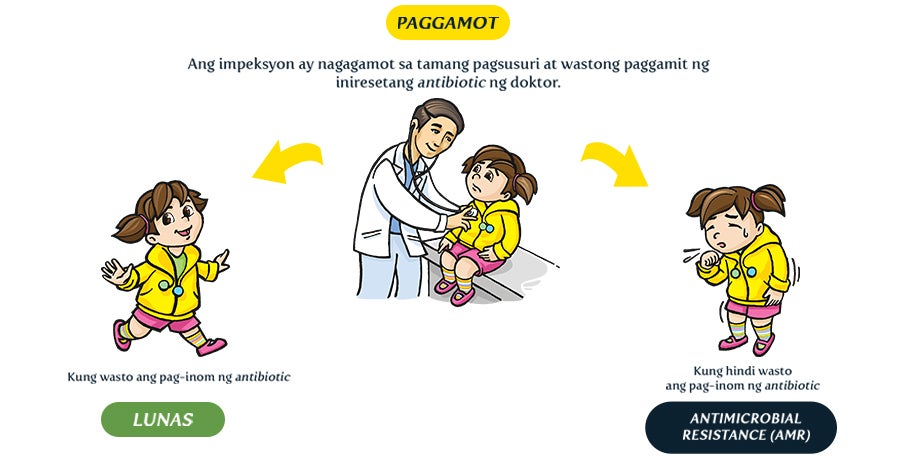The infection becomes more difficult and expensive to treat and sometimes may lead to death. Let us fight antimicrobial resistance (AMR).


Listen to loved ones. Enrich the mind.
But listen only to your doctor for antibiotics.
Never buy antibiotics without prescription.
Misuse of antibiotics makes the bacteria resistant and the infection more difficult and expensive to treat.
Fight Antimicrobial Resistance.
Listen to your doctor.

Share food. Share ideas. Share life. Feed the soul.
Share to play. Share the joy. Share life.
But never share or use leftover antibiotics.
Misuse of antibiotics makes the bacteria resistant and the infection more difficult and expensive to treat.
Fight Antimicrobial Resistance.
Let’s do our share.

Conserve water. Heal the planet.
Conserve fuel. Conserve electricity.
But not antibiotics.
Always take the full prescription even if you feel better.
Misuse of antibiotics makes the bacteria resistant and the infection more difficult and expensive to treat.
Fight Antimicrobial Resistance.
Take your doctor’s full prescription.
Now that you were prescribed an antibiotic, it is important to know the following:
- What is Antibiotic?
- Antibiotics are medications that kill bacteria, which causes infections.
- Doctor’s instructions in taking antibiotic
- How much antibiotic in one dose?
- How many days to be taken?
- How frequent in a day?
- Can it be taken with or without meals?
- Other Doctor’s Instructions (if any)
- Important Reminders
Are there side effects to watch out for?


“Is a flu shot for me?”

For healthy men and women, have your flu shot especially if there’s a baby in the house. You might catch the virus and transfer it to the helpless baby who is at risk of complicated respiratory infections.
For women, consult your obstetrician about routine flu vaccination in pregnancy.

Flu disease is most common in children 6 months old to 2 years old. For healthy adults, have your flu shot. You might catch the virus somewhere and transfer it to the child in your family who belongs to this age group.

Unlike other vaccines, the flu vaccine is given every year since the flu virus changes or mutates every year. This means that the flu vaccine you receive today may not protect you from flu next year.

Flu vaccination in children 2-5 years old triggers a more efficient immune response to combat the influenza virus.

Catching flu in healthy adults might not be complicated, but if an elderly catches the flu there is a higher risk of complications that may be fatal. Flu vaccination in the elderly helps in the prevention of flu and its complications. For healthy adults, have your flu shot. You might catch the virus somewhere and transfer it to the elderly in your family.